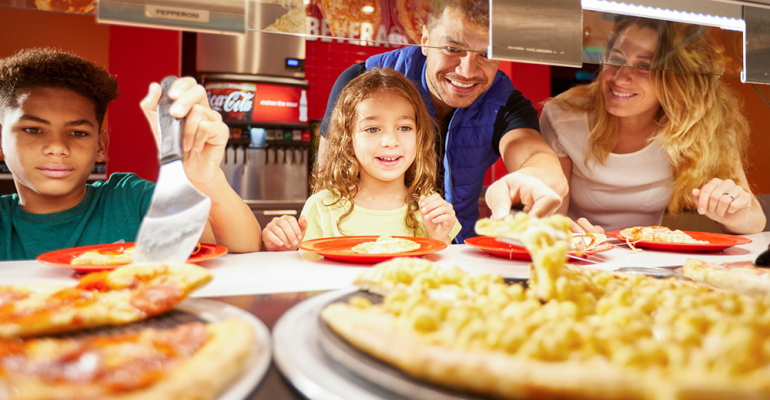Earlier this year, a New Jersey restaurant decided to ban children under 10 due to a combination of factors that included noise, mess, lack of space for high chairs, and liability issues with kids running underfoot. Not long after, a Chick-fil-A in Pennsylvania banned kids under the age of 16 from dining at the restaurant without adult supervision after one too many incidents with rowdy tables of teenagers. The back-to-back news reignited an ongoing debate about whether restaurants should do more to restrict children in order to keep the peace for other diners.
The short answer? No. Kids belong in restaurants just as much as adults do, and banning children of any age from dining at an establishment sends a message that certain guests are not wanted. As we’ve seen with the recent restaurant bans, that’s a message that’s likely to create a public relations backlash that will overshadow any good the restaurant was hoping to accomplish.
When it comes to unaccompanied teens, unruly behavior should never be tolerated. But it’s important to remember time and place. If a restaurant happens to be a popular gathering spot after school, it’s in the restaurant’s best interest to maintain its status and work with the kids, not against them. Provide incentives for kids to continue frequenting the business, such as free food or drink items after a certain number of purchases. Post hashtags for sharing on social, and Instagram photo backdrops. When there is an issue, always approach with kindness. Keep the rules simple and state them clearly.
The power of dining out
Think back to your memories of dining out as a kid. Maybe it was a monthly family outing to a favorite restaurant, and you were allowed to order anything you wanted from the menu. Chances are, you still remember how proud you felt to tell the waiter or waitress your order, and how eagerly you anticipated your favorite dish arriving at the table.
Children learn how to act in restaurants by dining out with their parents. They will not get it right at first. They may talk too loudly or become restless. They may attempt to play with the salt and pepper shaker or accidentally spill a drink. But in practicing sitting up straight, ordering their meal, and tasting new items, they are learning to understand the practice of eating out and the etiquette that goes along with it. They are developing the skills that will turn them into independent diners who don’t need to be supervised in order to act appropriately.
Children who have early experiences of dining out tend to develop fond memories. They are likely to return again and again to their favorite places — and they’ll want to bring their own kids there, too, to re-create the experience.
It all starts with training
Restaurants can consider themselves an early dining training ground for young restaurant goers. Staff work in concert with parents to help guide kids in how to order and how to behave and respond positively when things go well.
It all starts with training. Restaurant staff need to be well-trained in how to approach tables with kids of different ages in order to provide them with the best possible experience while preserving the experience for other diners.
For the youngest restaurant-goers, that means offering something to eat soon after they are seated along with some sort of toy or crayons. Also, all restaurants should offer kids’ items on the menu. These do not need to be the old standbys of mac ’n’ cheese and hotdogs but can be smaller portions of adult menu items, including salmon, shrimp, chicken, and steak with simple sides.
Ultimately, children and adult diners should be treated no differently. Client experience is paramount to a restaurant’s success, and children and teens are part of the community and belong at the table. Rather than devising new ways to keep kids out, find more ways to bring them in and keep them coming back. Teens have enormous spending and social sharing power — and they are extremely loyal to their favorite places. And parents with younger children are eager to find restaurants that offer extra touches to keep their children happy so that they can enjoy a special family outing.
A restaurant should always remember: Young diners offer a golden opportunity to win a guest for life.
 AUTHOR BIO
AUTHOR BIO
Mark Moeller is founder and president of The Recipe of Success, a national restaurant consulting firm. For more information, visit recipeofsuccess.com.





